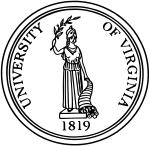Fralin Museum of Art

The Fralin Museum of Art is an art museum at the University of Virginia. Before 2012, it was known as the University of Virginia Art Museum. It occupies the historic Thomas H. Bayly Building on Rugby Road in Charlottesville, Virginia, a short distance from the Rotunda. The museum's permanent collection consists of nearly 14,000 works; African art, American Indian art, and European and American painting, photography, and works on paper are particularly well represented. The Fralin serves as a teaching museum for academic departments in the university, and serves the community at large with several outreach programs. Admission is free of charge and open to the public. In the spring of 2012, Cynthia and W. Heywood Fralin announced a bequest of their collection of American art to the museum. In honor of their gift and Heywood Fralin's service to the university and to the arts in Virginia, the Board of Visitors voted to name the museum The Fralin Museum of Art.
Excerpt from the Wikipedia article Fralin Museum of Art (License: CC BY-SA 3.0, Authors, Images).Fralin Museum of Art
Fontaine Avenue,
Geographical coordinates (GPS) Address Website Nearby Places Show on map
Geographical coordinates (GPS)
| Latitude | Longitude |
|---|---|
| N 38.038526 ° | E -78.502786 ° |
Address
University of Virginia
Fontaine Avenue
22904
Virginia, United States
Open on Google Maps










